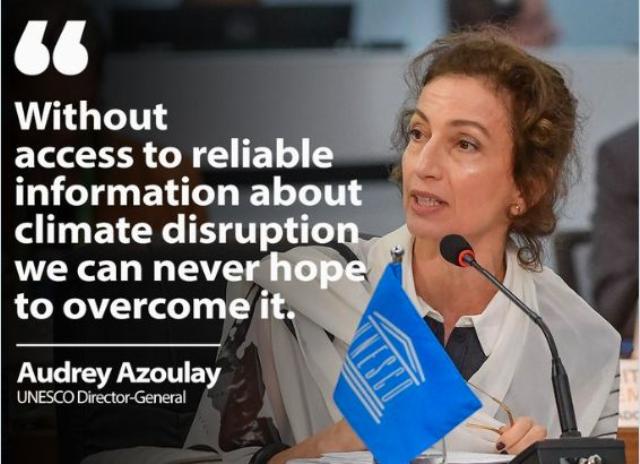The United Nations, UNESCO, and the Brazilian government unveiled the Global Initiative for Information Integrity on Climate Change at the G20 Leaders’ Summit in Brazil on Tuesday. The initiative aims to combat climate disinformation that hampers global efforts to address the climate crisis.
Strengthening Global Action
Speaking at the summit, UN Secretary-General António Guterres emphasized the urgent need to counter climate disinformation.
“Coordinated disinformation campaigns are impeding global progress on climate change,” Guterres said, highlighting the effort to mobilize researchers and partners in addressing the issue.
With scientists warning of limited time to act, the initiative seeks to gather evidence globally to enhance advocacy, communication strategies, and research on disinformation’s impact on climate action.
The Role of Reliable Information
UNESCO Director-General Audrey Azoulay stressed the importance of access to trustworthy information.
“Without access to reliable information about this existential challenge, we can never hope to overcome it,” Azoulay said. She underscored the role of journalists as a critical link between science and society, advocating for their protection against risks they face while reporting on climate issues.
Funding and Participation
Countries signing onto the initiative will contribute to a UNESCO-administered fund aimed at raising $10–$15 million over the next three years. These funds will support NGOs engaged in researching climate disinformation, developing communication strategies, and launching awareness campaigns.
So far, Chile, Denmark, France, Morocco, Sweden, and the United Kingdom have committed to the initiative. Brazilian President Luiz Inácio Lula da Silva highlighted the need for a collaborative approach, stating, “Actions to combat climate change are also greatly affected by denialism and disinformation. Countries cannot tackle this problem individually.”
Preparing for COP30 in Brazil
The initiative will play a vital role in the lead-up to COP30, scheduled to take place in Brazil. It aims to foster global collaboration among countries, international organizations, and research networks.
Challenges of Climate Disinformation
Disinformation, particularly on social media, messaging platforms, and generative AI, poses a significant threat to climate goals. UNESCO noted that such misinformation undermines scientific consensus, weakens governmental responses, and endangers journalists and environmental advocates.
The Intergovernmental Panel on Climate Change (IPCC) recognized the issue in 2022, stating that “deliberate undermining of science” contributes to public misunderstanding, delayed action, and increased risks.
Looking Ahead
The initiative reflects the UN’s commitment to the Global Digital Compact adopted in September, which calls for assessing the impacts of disinformation on achieving Sustainable Development Goals.
By uniting countries and stakeholders, the initiative aims to counter climate denialism and misinformation, fostering informed global action against the climate crisis.

